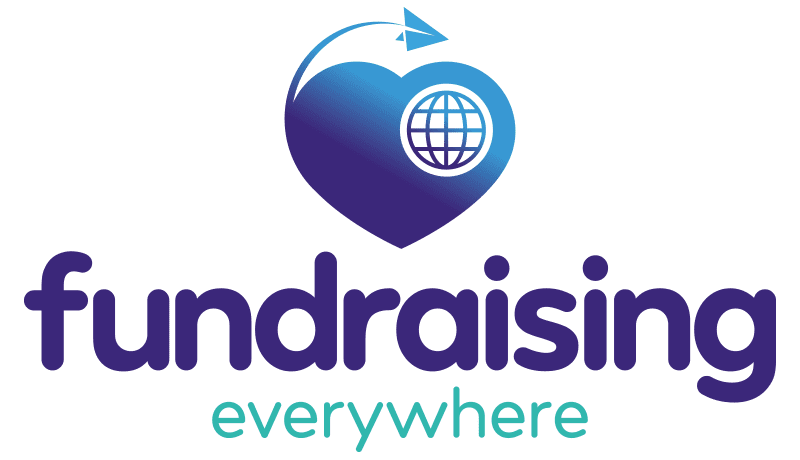
Written by Simon Scriver
The dream: Creating accessible learning for everyone
When Nikki and I launched Fundraising Everywhere in 2019 we wanted to create a fundraising community and training events that were affordable, accessible, engaging and human.
We wanted to elevate speakers to new audiences and give them the same opportunities we had been so fortunate to have had ourselves.
All of the speakers at our first conference were paid.
We did this by securing sponsors and by offering a profit share to everyone involved.
Ever since then we've been very vocal about speaker payments and our belief that conferences should always value the time of the people that make their event a success.
Your speakers need to be paid. If you can't afford to pay people fairly then you can't afford to do it.
Speakers of course don't have to accept payment, but a standard policy of no payment or putting speakers in the awkward position of having to ask for financial support is an outdate practice.
Let me share the journey I've been through as a professional speaker...
My journey as a professional speaker
After several years as a successful fundraiser, I had learnings to share.
My good friends at The Wheel came to me with a chance to share my wins, mistakes and learnings with a room full of charity staff and volunteers.
I was fortunate enough to be paid by The Wheel. I was privileged enough to be in a job where could take time to work on my training session. I had a supportive partner and a supportive board who saw the benefit of my doing this.
Your speakers need to be paid. If you can't afford to pay people fairly then you can't afford to do it.
I was privileged. I worked hard to create an opportunity for myself...but I'm aware no matter how hard some people worked they would never have that same opportunity.
I put the time, money and effort into trying to be a better speaker. I started Toastmasters...a life-changing experience you're probably sick of hearing me talk about. It cost me €5 and a few hours each week.
I continued to deliver training. The majority of the time it was unpaid.
Often there would be a personal cost.
I had to cover my own time.
My own travel and my own expenses.
I was privileged. I worked hard to create an opportunity for myself...but I'm aware no matter how hard some people worked they would never have that same opportunity.
I was fortunate enough to be able to do that. It allowed me to get better and eventually I started to get more and more speaking opportunities.
I've been able to earn a living from presenting and speaking. Despite my overwhelming anxiety and insecurities, I love it. I'm so happy that I've had the chance to become a better speaker, even to the point that I represented UK & Ireland at Toastmaster's world speaking championship (I was disqualified because I went over time).
My first international conference was AFP Congress in Toronto. It's still probably my favourite conference. I'm grateful to the wonderful Amy Pawluk and committee for taking a chance on me, and every year at Congress for the rest of my life I will make a point of thanking Amy.
AFP paid for my travel and accommodation. The trip still cost me money, but I was privileged enough to have the means to cover it.
I've spoken at conferences such as ICON that don't even pay expenses. Their invitation for me to speak cost me approximately €3,000 plus the loss of billable hours.
All of the speakers at our first conference were paid.
The big opportunity gap
The majority of people working in the nonprofit sector can not afford to pay hundreds let alone thousands for speaking opportunities.
As a result, the shareable skills and knowledge of our sector sits behind a gatekeeper.
Potential speakers who can teach us how to be more successful aren't heard because they can't afford to share.
Every once in a while, I'll post on LinkedIn that speakers need to be paid. Every once in a while, someone disagrees, dismisses or calls me naive. They always look like me. Their reasoning generally boils down to the idea that speakers should invest in themselves and that the exposure is invaluable.
Let me attempt to gather all my responses to that fallacy here:
- Start by Googling 'exposure as payment' and look at one of the millions of articles or memes scoffing at this. Then consider that maybe, just maybe you're on the wrong side of history.
- That's a big investment. Even if that €3,000 creates a huge return, most of us don't have that kind of cash lying around.
- Exposure for what? Another unpaid piece of work? At some point someone has to pay...why is it that your conference gets a pass?
- Not everyone needs exposure. Not everyone is an agency, salesperson, or desperately in need of affirmation like you and me. One might even argue that the fundraisers we'd benefit most from hearing are the ones that don't need any exposure because they're too busy working.
- Not everyone wants exposure. Imagine! Your conference tags some poor fundraiser on LinkedIn and one of their major donors see that they're delivering a session titled "5 reasons your donors are like aggressive otters".
Shareable skills and knowledge of our sector sit behind a gatekeeper.
Changing things for the better
Let's face it...expecting your speakers to offer unpaid labour is another outdated practice we've fallen into the trap of accepting because it's always been that way.
Potential speakers who can teach us how to be more successful aren't heard because they can't afford to share.
Our sector suffers because of it.
So let's change it:
- If you're a speaker or potential speaker then know your value. Ask for payment or true value exchange. Tess Nixon Spiller said you need to "really understand what the business development offer is."
- If you're a sponsor then ask if speakers are being paid. If not, why not? Offer to pay more to enable it (Don't worry about the cost...you'll get more exposure!).
- Conferences need to prioritise speaker payments as cost. As Ryann Miller said, "If we want a sector that truly and objectively values its professionals, we need to model the behaviour we identify as having value. Compensation is a key lever to show value."
- If you're an attendee then ask the event organisers what their speaker payment policy is. If you're learning from someone who is relying on 'exposure' then give them that value...put aside some time to look deeper in to what they're promoting or offering.
If you're a speaker or potential speaker then know your value. Ask for payment or true value exchange.






